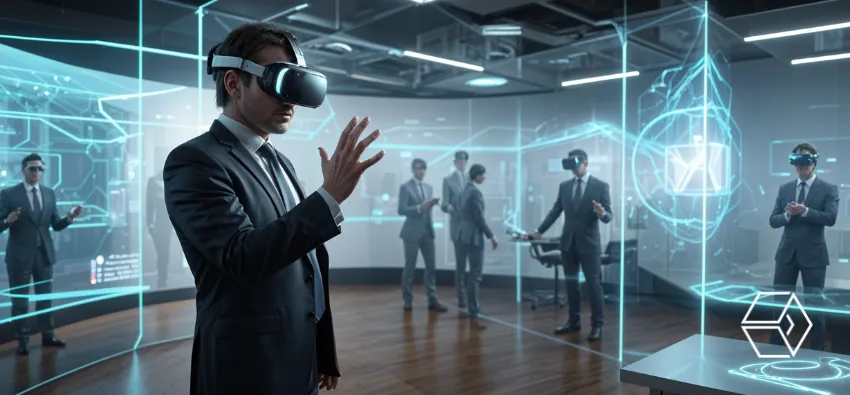
The “Metaverse – Global Strategic Business Report” forecasts that by 2030, the global market for metaverses will be worth $980.5 billion. The worldwide Metaverse industry, which was valued at approximately $90 billion in 2023, is projected to experience a remarkable metamorphic expansion by 2030, reaching a staggering $980.5 billion at a compound annual growth rate (CAGR) of 34.8% between 2023 and 2030.
This rapid expansion illustrates the phygital phenomenon, which signifies the fundamental advancement towards human integration with digital environments, by representing the merging of the physical and virtual worlds.
The Metaverse is important to this transformational period. Within this expansive digital realm, individuals can engage in real-time interactions and virtually participate in many tangible activities. Metaverse Software, a critical ecosystem component, is expected to increase at a high pace of 33.9% CAGR to $588.9 billion by 2030. As a result, the Metaverse Hardware category is staying within the pace, with a 37.9% CAGR expected over the next eight years.
The momentum is building as this virtual world redefines everyday things including communication, trade, and entertainment thanks to technical advancements and an expanding consumer base. The Metaverse is also made feasible by a broad value chain that comprises technology providers, content creators, and platform operators, among others, which allows the network to grow.
The North American region has emerged as the market leader and the Metaverse arena’s largest contributor. The US market is expected to reach $38.5 billion by 2023, while China’s compound annual growth rate (CAGR) of 38.5% could push it to $128.3 billion by 2030.
Europe and other Asian countries are also experiencing high growth, such as Canada and Japan, which are expected to increase by 31.2% and 30.4%, respectively. Germany would dominate Europe with a CAGR of around 33.8% during the projection period.
Metaverse’s possibilities are endless because it now mixes the virtual and actual worlds, even merging them all together. These advancements are made possible by advanced technology, such as AR, VR, MR, and XR, which are gradually becoming essential components of the Metaverse experience. These technologies are paving the way for how people view and exchange digital content, ultimately improving and bringing the Metaverse experience alive.
AI is also significant since it contributes to the development of more inventive and adaptive platforms that can improve user experience. Digital twins, another novel technology, are useful because they create a digital counterpart of actual assets or services. Digital Twins are also included in the Metaverse Technology Mix. Thus, real-time analytical capability and monitoring in the Metaverse can be improved.
Metaverse is more than just a technology revolution; it is a fundamental cultural shift that has the potential to reshape human social relationships, business methods, and entertainment. Venture capitalists and IT titans are progressively investing, demonstrating the widespread trust and optimism in space technology’s future. Companies increasingly see Metaverse as one of the most essential instruments for providing new experiences and expanding e-commerce.
The growing interest in the Metaverse world suggests that it will soon become the focal point of corporations’ digital initiatives and a foundation for consumer technology products. This virtual phenomenon will evolve by offering many opportunities for growth, improvement, and interaction.











